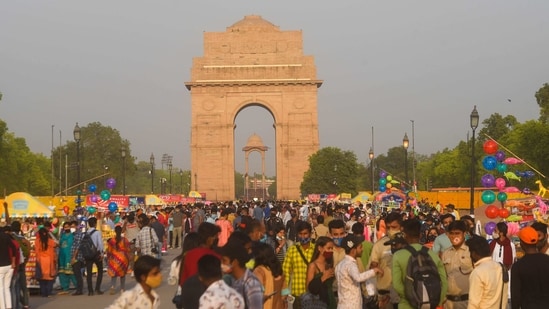Why is India seeing Covid-19 second wave? AIIMS chief Randeep Guleria explains
The remarks from AIIMS director Randeep Guleria come on the day India shattered its previous daily spikes in Covid-19 cases recorded from the time the pandemic crippled the country.
India's second wave of the coronavirus disease has been aggravated by lack of adherence to Covid-appropriate safety protocols and the circulation of highly infectious strains of SARS-CoV-2, All India Institute of Medical Sciences’ (AIIMS’) director Dr Randeep Guleria said on Monday.

The coronavirus crisis, torpedoing economies and burdening medical infrastructure, worsened at the end of February in India and the country has since been reporting record Covid-19 cases every day. India on Monday shattered its previous daily spikes in Covid-19 cases recorded since the pandemic hit the country. On Monday, India saw the biggest single-day jump of 1,68,912 fresh Covid-19 infections, pushing the cumulative tally to 1,35,27,717, according to Union health ministry data.
Also read: HT Editorial | Stop public rallies, now
India's Covid-19 crisis is unfolding in primarily 10 states, which account for 83.02% of the cases reported in the last 24 hours, according to the Union ministry of health and family welfare. These states—Maharashtra, Uttar Pradesh, Delhi, Chhattisgarh, Karnataka, Kerala, Tamil Nadu, Madhya Pradesh, Gujarat and Rajasthan—have imposed several curbs and restrictions to break the chain of transmission of the cases.
Guleria pointed out that the infection rate has surged and the disease outbreak is compounded by the presence of highly infectious strains. "Earlier, if one sick person was able to infect around 30 per cent of their contacts, this time those getting the disease are infecting a larger number of people,” Guleria told PTI.
People are taking the disease lightly now, the chief of India's premier hospital said. "If you go out, you see that marketplaces, restaurants and shopping malls are crowded and full of people and these all are super-spreader events," Guleria said. "Around February, when cases started to decrease, people became lax towards following Covid-appropriate behaviour as they thought the virus had become ineffective… So, the rate of spread of the infection is fast possibly due to the highly infectious and transmissible strains circulating,” he said.
Guleria called everyone to stay home saying, "unless it is important, people should not venture out.
Also read: Sputnik V, ‘world's first' Covid-19 vaccine, gets experts' nod in India. All you need to know
He also said stricter enforcement of Covid-appropriate behaviour has to be ensured to ensure the progress made by India in the last year does not go to waste.
"We may lose the gains we have made so far if we do not pay heed now and the situation may completely get out of control. If the situation is not reversed, then the galloping infection rate will eventually cause a huge strain on the healthcare system also," he told PTI.






